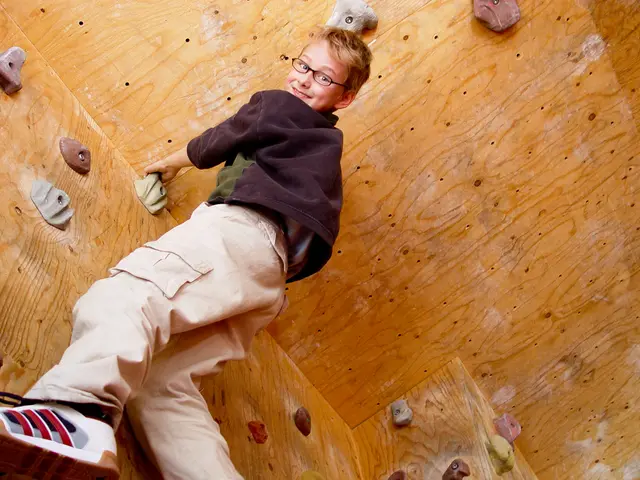Exploring the Time-Honored Customs and Methods of Islamic Learning
Learning in Islamic cultures isn't just about book smarts; it's a journey intertwining spiritual and moral development. This holistic approach, driven by cultural and religious roots, is uniquely characteristic of educational practices in Islamic societies. Here's a rundown of what sets these educational traditions apart, and how they impact contemporary learning.
Historical Roots
Knowledge seeking has been a religious duty in Islamic societies since the Prophet Muhammad emphasized its importance, stating, "Seeking knowledge is an obligation upon every Muslim." Madrasahs, educational institutions originating in the 10th century, remain enduring symbols of this educational tradition. They don't just teach the Quran and Hadith; they delve into math, science, philosophy, medicine, and more - all in a bid to create well-rounded scholars.
Role of Religion
In Islamic cultures, education serves as a pathway to deepen one's faith and promote moral behavior within the community. The integration of religious and secular subjects is a hallmark of these educational systems. Subjects are designed to inspire ethical and spiritual contemplation, fusing religious precepts with worldly knowledge. Knowledge, according to Islamic educational philosophy, should lead to beneficial action, promoting collective growth and empowerment.
Modern Adaptations
Today, Islamic education encompasses contemporary subjects, like technology and business, while upholding traditional values. Religious studies form a significant part of the curriculum in countries like Saudi Arabia and Pakistan, instilling a sense of identity and community values. Comparatively, countries with diverse religious populations like Malaysia and Indonesia provide Islamic education through dedicated schooling systems alongside secular ones, catering to the Muslim population.
Challenges & Innovations
Striking a balance between traditional teachings and modern demands is a challenge Islamic education faces. There's ongoing debate about how to effectively integrate modern technological advancements without compromising religious values. To overcome these hurdles, digital technology in teaching religious texts, online platforms, and comparative education are employed to make Islamic education more accessible and engaging.
Character Development and Gender
The character development of students is of great importance in Islamic education, with virtues like honesty, respect, and community service being emphasized across the curriculum. This comprehensive approach aims at developing well-rounded individuals who contribute positively to society.
Historically, women had limited educational opportunities, but contemporary Islamic societies increasingly recognize the importance of education for both genders. Encouraged by religious texts advocating for education regardless of gender, today's Islamic countries offer coeducational and gender-specific learning options, ensuring maximum educational opportunities while respecting cultural and religious practices.
Innovative Teaching Methods
Modern teaching methods, including interactive learning styles, multimedia resources, and problem-based learning, are adopted within Islamic educational settings to improve learning outcomes and engage students more effectively. For example, project-based learning in madrasahs helps students apply their knowledge practically, combining theory with real-world scenarios, thus developing teamwork and communication skills.
Globalization and the Future
As globalization redefines all aspects of society, Islamic education must prepare students to thrive in this ever-changing world. This preparation involves teaching English, offering international exchange programs, and integrating global cultural awareness into the curriculum, allowing students to navigate the global stage with confidence while preserving their identity.
Educators in Islamic contexts are conscious of the need to balance global competencies with religious and cultural values, ensuring students are well-prepared for the challenges ahead. The future of Islamic education promises further transformation, marked by technological advancements, refined pedagogical methods, expanded curriculum, and emphasis on inclusivity and accessibility.
Integration of Values in the Curriculum
A key aspect of Islamic educational tradition is the incorporation of Islamic values into various subjects, not just religious studies. This holistic approach persists in literature, social studies, even science. The merging of religious perspectives with academic content encourages students to examine moral implications alongside factual content, cultivating well-rounded individuals who contribute positively to society.
Social studies in Islamic education aren't isolated from moral and spiritual development; they're integrated to promote ethical contemplation and societal improvement, following the Islamic educational philosophy that knowledge should lead to beneficial action.
As a result of this holistic approach, learning activities in social studies delve into discussions about community values, cultural practices, and historical examples to instill a sense of identity and well-rounded character development.








